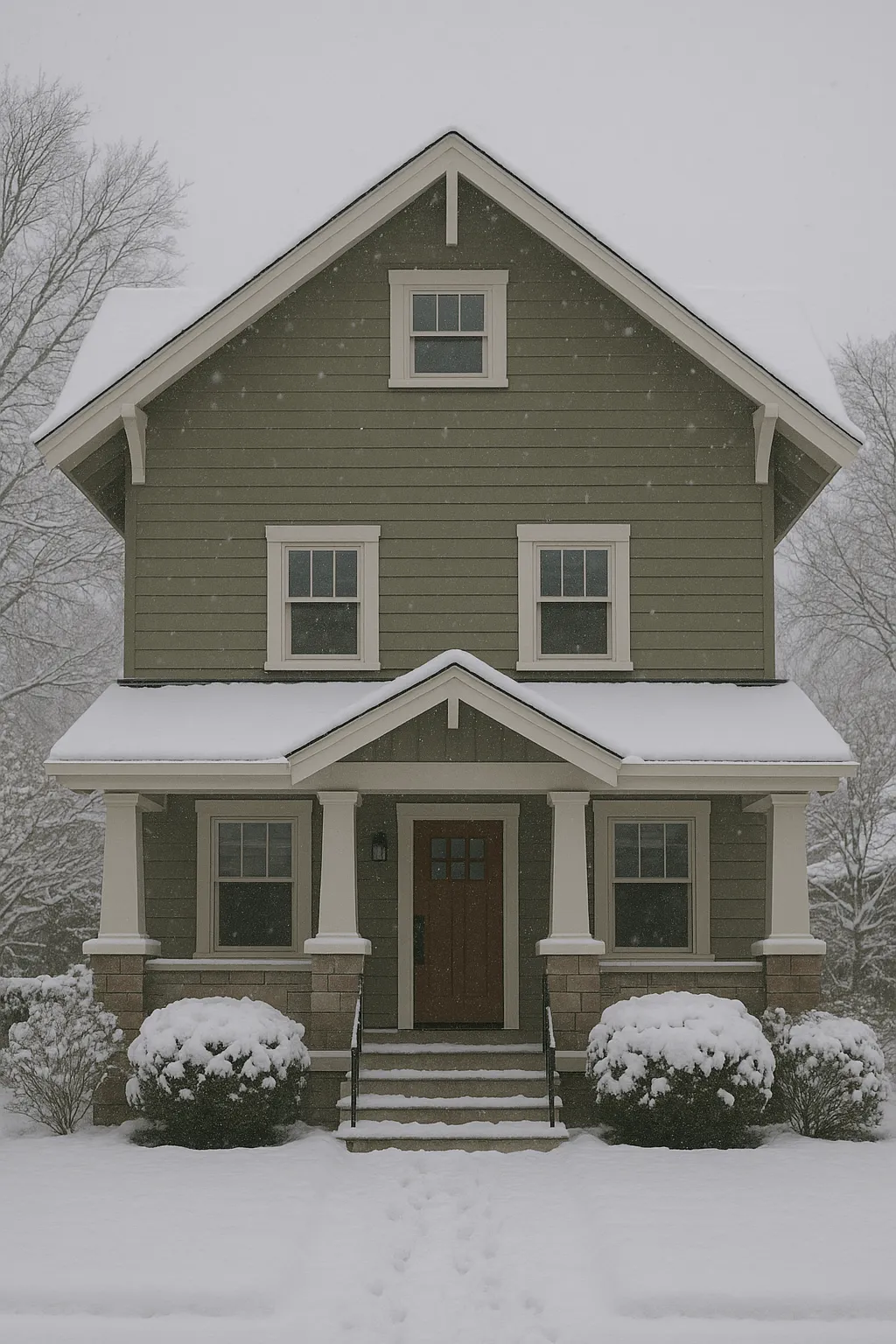
Winter’s Quiet Invaders: The Pests That Move In When It’s Cold
Winter’s Quiet Invaders: Pests That Move In When It’s Cold
When temperatures drop in the Pacific Northwest, you might think pest season is finally over. Unfortunately, that’s not the case. While mosquitoes, wasps, and other warm-weather insects disappear, another group of unwelcome guests begins looking for a cozy place to spend the winter — your home.
Cold weather doesn’t kill every pest; it simply changes their behavior. Instead of thriving outdoors, many seek warmth, food, and shelter inside crawl spaces, basements, attics, and wall voids. This quiet invasion often goes unnoticed until the damage is already done.
Let’s take a closer look at the pests that move in when it’s cold — and how to protect your home before they settle in for the season.
1. Rodents: The Masters of Winter Survival
Rats and mice are among the most common winter invaders. As food sources dwindle outdoors, they slip through cracks as small as a dime to find warmth and steady food inside homes.
Once indoors, rodents breed quickly — a single pair of mice can produce up to 60 offspring in a season.
Warning signs of a rodent infestation:
Scratching or scurrying sounds in walls or ceilings
Droppings near pantries, cabinets, or crawl spaces
Gnaw marks on wires, boxes, or furniture
A musky odor, especially in enclosed areas
Rodents aren’t just a nuisance; they carry diseases, contaminate food, and cause serious property damage by chewing through insulation, wood, and even electrical wiring.
All-Shield’s Solution:
Our technicians use a combination of exclusion (sealing entry points), humane trapping, and sanitation to eliminate rodents safely and prevent future infestations. We focus on finding the why behind rodent activity — from nearby vegetation to gaps in crawl space vents — so the issue doesn’t return.

2. Ants: Not Just a Summer Problem
It’s easy to think ants disappear in winter, but that’s only partly true. When the ground freezes or becomes saturated with rain, ant colonies move deeper underground — or indoors.
Species like odorous house ants and carpenter ants are especially active in Northwest homes during the colder months.
Carpenter ants don’t eat wood, but they tunnel through it to build their nests. Over time, this can weaken structural beams and cause costly repairs. Odorous house ants, on the other hand, nest behind walls and under floors, emerging to forage for sweets or moisture.
Prevention tips:
Fix leaks under sinks and around appliances
Store food in airtight containers
Seal cracks around baseboards and window frames
Trim vegetation touching your home’s siding
All-Shield’s Approach:
We identify ant species through inspection and use targeted treatments that eliminate colonies at the source — not just surface-level trails. Long-term prevention is built around moisture control and structural protection.
3. Spiders: Seeking Shelter and Prey
Most spiders are harmless and even helpful outdoors, but during winter, they follow their prey — smaller insects — into your home. Basements, crawl spaces, and storage areas offer the dark, quiet environments spiders prefer.
Common Northwest species:
Giant house spider: Fast, large, and often mistaken for the hobo spider
Cellar spider: The long-legged “daddy longlegs” often seen in corners
Hobo spider: Can bite if threatened, though cases are rare
While spiders don’t cause structural damage, their presence signals other pest activity — meaning there’s something else for them to feed on.
All-Shield’s Role:
We perform targeted perimeter treatments and de-webbing services, reducing both spider populations and the smaller insects that attract them.

4. Cluster Flies and Other Winter Buzzers
If you’ve ever noticed slow-moving flies buzzing near windows in the middle of winter, you’re not imagining things. These are likely cluster flies — outdoor insects that hibernate indoors during cold months.
Cluster flies squeeze into attics, walls, and window frames in the fall, becoming active whenever indoor temperatures rise. They don’t reproduce inside, but their numbers can be alarming.
How to reduce cluster fly infestations:
Seal cracks and gaps around windows and eaves
Install fine mesh screens on vents and chimneys
Vacuum up visible flies instead of using sprays
All-Shield’s Process:
We treat exterior entry points and attic spaces with safe, residual products that keep flies from overwintering again.
5. Other Unexpected Guests
Aside from the usual suspects, colder months also drive squirrels, raccoons, and birds to explore attics and chimneys. These wildlife pests can cause extensive insulation damage and introduce fleas, ticks, and mites.
If you hear heavy movement in your attic or scratching near your vents, it’s best to contact a professional. Attempting to remove wildlife without proper gear or training can be dangerous.
All-Shield’s Expertise:
Our humane wildlife control services include safe removal, exclusion repairs, and sanitization to restore safety and cleanliness to your home.

Why Winter Pest Control Matters in the Pacific Northwest
The Pacific Northwest’s mild, wet winters create ideal conditions for pests to thrive year-round. Constant rain, wood-heavy construction, and crawl space ventilation all contribute to pest migration indoors.
Skipping winter pest control means giving these invaders a head start before spring.
Benefits of seasonal pest protection:
Prevents infestations before they spread
Protects insulation, wiring, and wood structures
Keeps indoor air cleaner and allergen-free
Reduces the need for aggressive treatments later
All-Shield’s preventative programs are designed to keep homes protected in every season — because pests don’t take the winter off.
Stay One Step Ahead with All-Shield Pest Control
When the cold sets in, your home becomes prime real estate for pests. From rodents in crawl spaces to ants nesting behind walls, early detection and prevention make all the difference.
At All-Shield Pest Control, we specialize in year-round protection for homes across the Pacific Northwest. Our technicians combine expert inspection, targeted treatments, and crawl space maintenance to stop pests where they start.
Don’t wait for scratching sounds or droppings to appear — winterize your pest protection today. Call All-Shield Pest Control or schedule your inspection online to keep your home pest-free this winter and beyond.